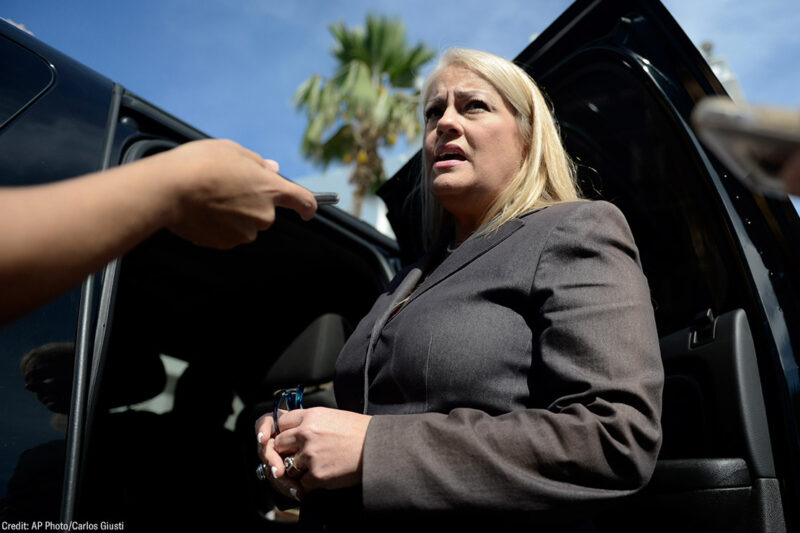We’re Suing to Protect Press Freedom During the COVID-19 Pandemic


Few things are more important during an emergency than a free and independent press to hold the government’s feet to the fire. During the ongoing COVID-19 public health crisis, reporters have debunked government statistics that undercounted infection and fatality rates, exposed public officials who dumped stock while telling the public that there was nothing to fear, and kept a running tally of President Trump’s many falsehoods.
Reporters are working double-time to hold our leaders accountable and keep the public well-informed. But in Puerto Rico, the free press is under direct threat.
Today, we filed a First Amendment lawsuit challenging two recently-enacted Puerto Rico laws that make it a crime to share information the government deems to be false about emergency conditions on the island. We represent Sandra Rodríguez Cotto and Rafelli González Cotto, two prominent investigative journalists who fear that the laws will be used to punish them for their reporting on the COVID-19 crisis, especially reporting that reflects negatively on the government. Because these laws pose an imminent threat to core First Amendment freedoms, we’re asking the federal court hearing our case to block them as soon as possible.
The first law, which was passed in 2017, makes it a crime to raise “false alarms” about “non-existing abnormalities” during a declared emergency. The second law, which was passed just last month in the midst of media coverage critical of Puerto Rico’s handling of the COVID-19 pandemic, makes it a crime to share “false information” about the government’s emergency orders and curfew orders with the intent to cause “confusion, panic, or public hysteria.” People convicted for violating these laws could face six months, or in some circumstances up to three years in prison, as well as thousands of dollars in government fines.
Just because these laws are limited to speech the government considers false does not mean that only false speech will be deterred. The laws’ broad sweep and vague language give people far too little guidance on what speech may constitute a crime, and government far too much discretion in deciding whom to prosecute. People will naturally think twice before speaking —or refrain from speaking entirely — if a factual dispute with the government or an inadvertent mistake or misunderstanding could land them in prison.
To prevent this kind of chill on public debate, the First Amendment protects false speech in most circumstances. And even unprotected false speech, like defamation, can’t be penalized if there’s a significant risk that it will deter speech on matters of public concern. Thus, for example, the Supreme Court has long held that criminal defamation laws must require the government to demonstrate “actual malice” – i.e., that the speaker knew (or at least strongly suspected) that the speech was false.
Puerto Rico’s “fake news” laws don’t include an actual malice requirement, which means that journalists cover the COVID-19 crisis at their peril. An article that happens to include an inadvertent mistake, or that contradicts the government’s official narrative (even when that official narrative is false), could easily lead to criminal prosecution.
Our clients’ fears that these laws could be used to punish journalists are not far-fetched. Under Puerto Rico’s former criminal defamation law, reporters were hauled into court and threatened with prosecution for exposing police corruption, even though the government had no evidence that anything the reporters wrote was inaccurate. Fortunately, that law was struck down for violating the First Amendment. These laws should suffer the same fate.
Access to reliable information is critical in times of emergency. “Fake news” laws may appear to promote this worthy cause by outlawing rumors and falsehoods. But the Constitution stands for the principle that the government cannot be trusted to regulate discussion on matters of public concern, and that a free press is the only reliable guarantee of a well-informed public. Especially in times of emergency, the First Amendment rights to free speech and a free press must be zealously defended against government meddling.
If the Puerto Rican government is genuinely concerned about the spread of misinformation during the COVID-19 public health crisis, then it should be promoting transparency rather than censorship. The government should be making it easier for journalists to inform the public about what is happening by holding regular press conferences, releasing pertinent records, and laying out the government’s proposed plan of action for public scrutiny. Laws criminalizing information the government deems false, on the other hand, will only make it easier for the government to clamp down on coverage it doesn’t like and harder for journalists to report the news the public needs to hear most.



